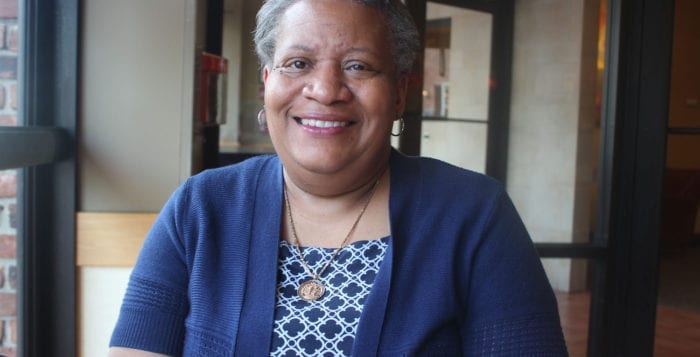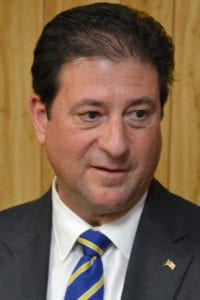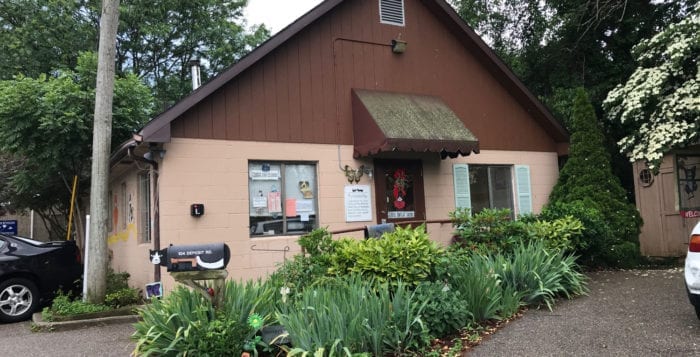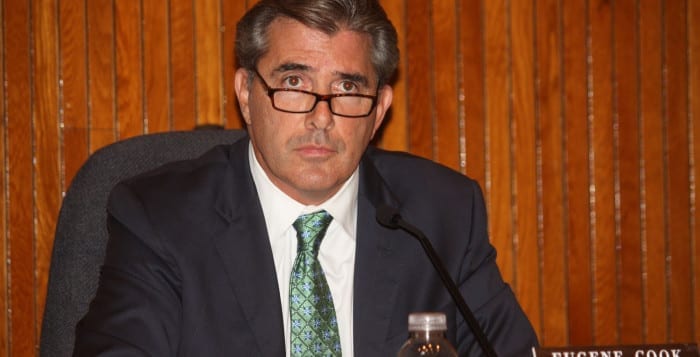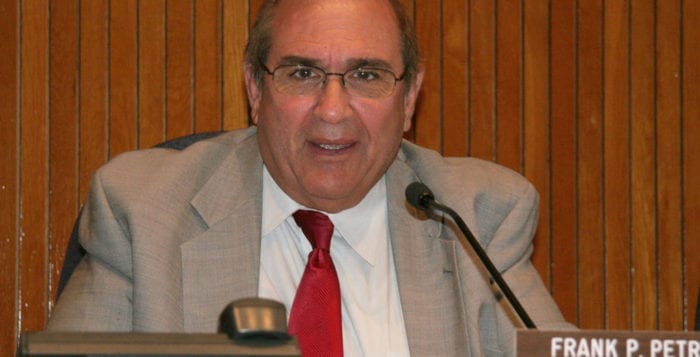By Kevin Redding
Town of Huntington Councilwoman Tracey Edwards (D) learned a lot about herself in 2017. For one, she’s not a politician.
The 56-year-old Huntington native, who lost to state Assemblyman Chad Lupinacci (R-Huntington Station) in the November race for town supervisor, will not be returning to the town board Jan. 1. But she is proud of the campaign she led and the community-oriented issues it centered on.
Edwards ran for Huntington’s top seat instead of taking the admittedly safer route of running as an incumbent for re-election to the town board. When asked why, she repeatedly said, “This is not about me. This is about what I believe is best for Huntington.”
She has always seen herself as a community advocate and public servant, first and foremost, a trait noticed and respected by those she has served.

“At the end of the day, I’m a community advocate,” Edwards said. “The nastiness and personal attacks in elections were never things I was ever interested in. I want to help people and our town. True public servants don’t stop doing that just because they lose an election.”
In junior high school, she got her official start in community service as a candy striper at Huntington Hospital. She was encouraged to give back to the community by her father — a narcotics detective on the town’s former police force — and mother, Dolores Thompson, a Huntington activist still going strong today.
Edwards has served on the board of directors of the Long Island Association in Melville and is the Long Island regional director of the NAACP — a post she said she looks forward to returning to.
As councilwoman and supervisor candidate, she focused on making Huntington a more inclusive place for everybody, regardless of age, race, gender or economic bracket.
“We have a very robust, diverse and unique town that is filled with wonderful neighborhoods and great communities,” Edwards said. “There’s no place else I would rather live. While I wish Chad Lupinacci the best, I’ll be keeping my eye on him to make sure this town continues to move in the right direction for all.”
True public servants don’t stop doing that just because they lose an election.— Tracey Edwards
During her four years in office, Edwards has worked alongside Councilwoman Susan Berland (D) to expand affordable housing legislation for millennials and first-time home buyers and has been hands-on with youth-based programs that focus on character building, recreation and tackling the drug problem. She created a special annual luncheon, dubbed Memories of Huntington, to honor seniors age 75 or older, who have lived in town for more than 50 years, for their contributions to Huntington’s history.
“Tracey is not a politician’s politician … she’s for the people,” said Jo Ann Veit, a member of the Senior Reunion committee. “People love her because she’s there for them and she gives you that feeling that she’s there for you, thinking about you and the town, and what would be best for the seniors in the town. When people leave that reunion, they’re all so pleased with Tracey and how genuine she is. She has been a wonderful councilwoman.”
Bob Santo, commander of Greenlawn American Legion Post 1244, has gotten the same sense of sincerity from Edwards in the years they’ve known each other.
“The first time I met Tracey was during a parade in Huntington Station and she was on the back of a motorcycle being ridden by one of our American Legion motorcycle [members] — she was having a grand old time,” Santo said, laughing. “With Tracey, what you see is what you get, and what she says is what she means. She’s never trying to pull the wool over anybody’s eyes.”

Santo praised the councilwoman for spearheading the Huntington Opportunity Resource Center, a program that offers assistance with résumé preparation, job searches, career options and job training access for unemployed and low-income residents, many of whom are veterans.
Edwards said her proudest accomplishment has been her ability to turn difficult times in her life into something beneficial to those around her. Upon being diagnosed with breast cancer in January 2016, she was determined not to miss a single board meeting and scheduled her chemotherapy, radiation and surgery sessions around them.
When she finally became cancer-free, Edwards, who said she goes for breast cancer screenings once a year, realized there were probably so many women out there who may not be aware of the importance of screenings or have access to health care.
She partnered with Huntington Hospital-Northwell Health to host an education program on preventative screening exams, risk assessment, nutrition and information for free breast cancer screenings at Huntington Town Hall.
She also helped to rewrite the town’s ethics code to make town hall a more transparent place for residents.
NAACP New York State Conference president, Hazel Dukes, commended Edwards for fighting for the rights of all people, regardless of race, creed or color.
She didn’t want to go back as a councilwoman and why would she? You don’t go backward, you keep going forward.— Dolores Thompson
“I know that Tracey Edwards is a committed and dedicated public servant,” Dukes said. “She truly brings conviction to the cause of equality and justice for all people. She’s embodied that in her professional life, as a worker in the NAACP and her political life.”
Edward’s work ethic comes as no surprise to her mother, Dolores Thompson.
“This year she’s had the initiative and aggressiveness and guts, in plain old English, to run for supervisor in this special community,” Thompson said. “She’s a trooper, a very strong woman who speaks her mind, and I’m very sure she will do something even better for this community as she progresses. She didn’t want to go back as a councilwoman and why would she? You don’t go backward, you keep going forward.”
Edwards, who lives in Dix Hills with her husband, was recognized by outgoing
Supervisor Frank Petrone (D) during a town board meeting Dec. 13.
“Four years ago, we were blessed with a person that I have never, ever encountered someone with more energy and the ability to move in and create change,” Petrone said. “A woman who has given so much in the short, short four years to the Town of Huntington and its residents … Tracey Edwards, we the members of the Huntington Town Board on behalf of the residents of Huntington wish to extend our sincere thanks to you for service to our community.”
Edwards thanked members of the community and assured all in the room her journey isn’t over.
“You haven’t heard the last of me,” she said. “You have not.”

